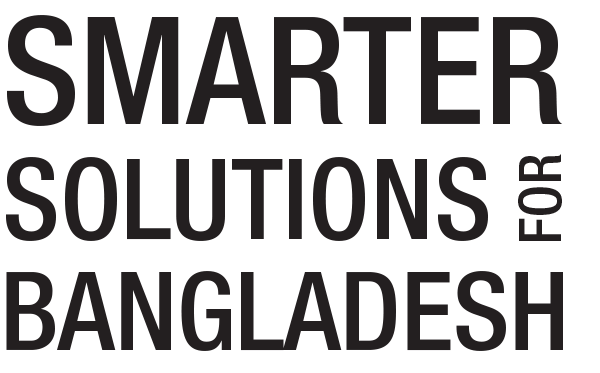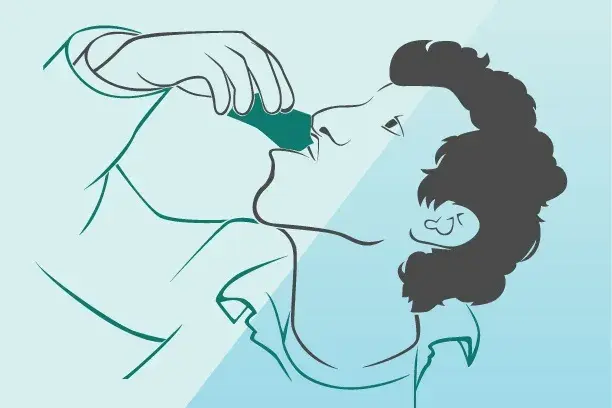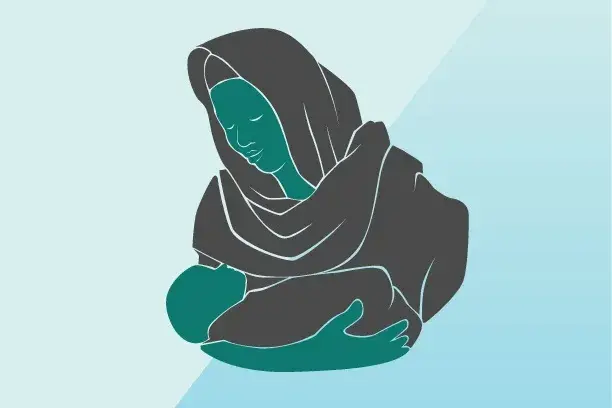Health
Like most developing countries, Bangladesh has to grapple with serious issues of public health. Every hour, tuberculosis kills nine Bangladeshis. Another seven die each hour from arsenic in drinking water. Barely half of all children in remote rural areas and urban slums have received immunization injections, and a disproportionate number of poor women die in childbirth. Simple and cheap solutions are available to avoid almost all these deaths. Research from Bangladesh Priorities provides new analysis of the best solutions for these and the other grave health issues.
Proposed Strategies
| Strategy | Takas of benefits per taka spent |
|---|---|
| TB treatment | 21 |
| Multi-drug resistant TB treatment | 3 |
| Facility births with skilled attendant | 8 |
| Newborn homecare by health workers | 27 |
| Immunize children in urban slums | 15 |
| Immunize children in remote areas | 8 |
Analyzing the benefit-cost ratio of interventions to improve the outcomes for those with drug-susceptible and multi-drug resistant Tuberculosis
Research by Anna Vasssall, a senior lecturer in health economics at the London School of Hygiene and Tropical Medicine, outlines a cost-effective TB treatment strategy using community health clinics.
Tuberculosis (TB) is a serious public health problem in Bangladesh. Bangladesh ranks 6th globally in terms of the burden of TB on the population."
- Anna Vassal
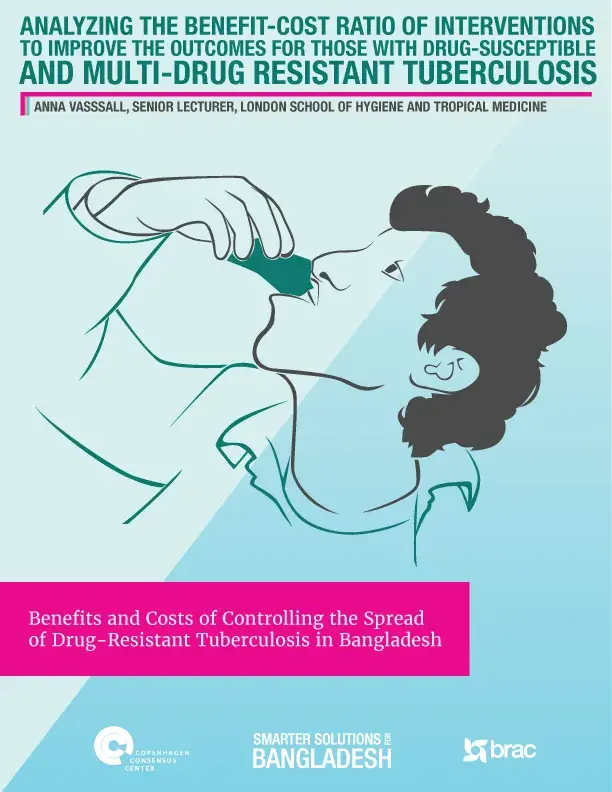
Analyzing Benefit-Cost Ratio of Health Interventions for Improving Maternal and Child Mortality and Child Immunization in Bangladesh
Research by Jahangir A.M. Khan, senior lecturer in health economics at Liverpool School of Tropical Medicine, and Sayem Ahmed, research investigator at The International Centre for Diarrhoeal Disease Research, Bangladesh, looks first at making births safer. Getting more women to deliver in medical facilities, which only half do now, could help.
A future vision for continuation of health improvement in the country thus requires evidence on economic benefits in addition to health benefits, which would be necessary for the investment plan of the government."
- Jahangir A. M. Khan & Sayem Ahmed
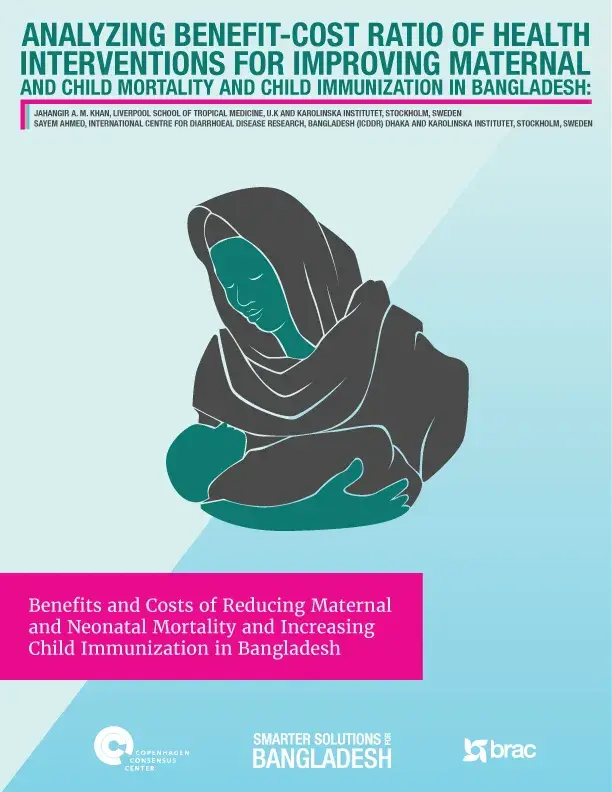
Healthcare solutions that are smart
In a series of op-eds published in The Daily Star and Prothom Alo, Bjorn Lomborg outlined the key findings of the path-breaking research produced by the Bangladesh Priorities project.
Every hour, tuberculosis kills nine Bangladeshis. Another seven die each hour from arsenic in drinking water. Simple and cheap solutions are available to avoid almost all these deaths." - Bjorn Lomborg
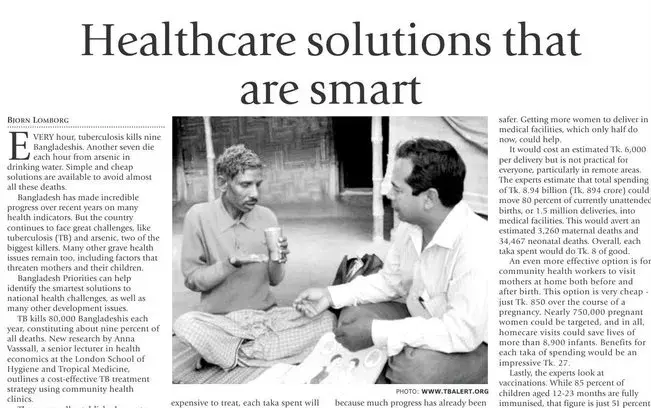
What's the smartest solution for Bangladesh?
These new studies suggest some of the smartest solutions for the health challenges that still plague the country. Would these strategies be some of your top priorities for Bangladesh? After reviewing 1,000s of pages of peer-reviewed research an Eminent Panel ranked 72 solutions from the best to the worst in terms of delivering the most social, economic and environmental value for money. Find out what they ranked the highest here.

